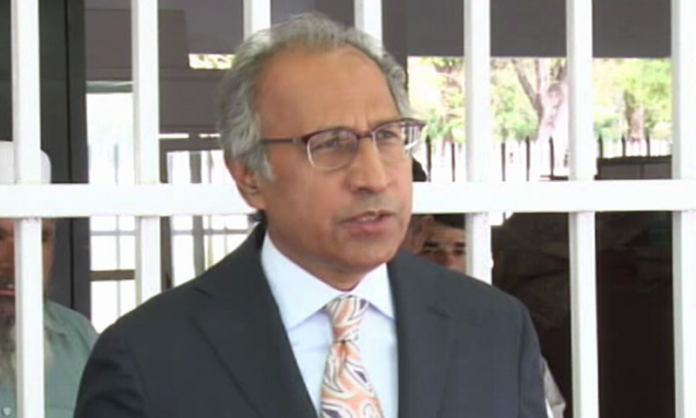ISLAMABAD: Adviser to Prime Minister on Finance and Revenue Abdul Hafeez Shaikh said on Thursday that joint ventures with the private sector were imperative to ensure economic development in the country.
Addressing the Peace and Development Conference in Islamabad, he said the process to achieve the goal of prosperity was not possible without the private sector’s support.
He said the government’s responsibility was to create an enabling business environment and to facilitate the private sector to grow and create more jobs.
“You cannot hire millions of people in government departments. It is not the government’s business to create jobs in its departments; instead, our role to create opportunities in the rest of the economy by providing the right sets of incentives,” he said. “The private sector of any country possesses a very important role in development, as it could find new markets in allied countries.”
He maintained that the incumbent government has provided a feasible environment for investors by ensuring ease in doing business.
“The government has taken effective measures to stabilise the national economy, resulting in a reduction in current account deficit up to 40 per cent.”
Dr Hafeez Shaikh said that it was essential for the developing countries to enhance the skillsets of their people.
“We must look to find ways to sell our products to other countries and to ensure that others partner with us,” he said. “This is the focal lesson of development as no country in the history has brought prosperity to its people alone, especially without its neighbours,” he added, citing the example of Chinese leadership which understood this lesson and brought 700 million of its people out of poverty.
He said that the region was marred by many problems including poor connectivity, low trade, no rail links, difficult border crossings, excessive visa restrictions, poor infrastructure links, unharmonised customs, poor access to insurance and finance, archaic foreign exchange rules and restrictive visa regimes. The solution, he said, lied in finding a way out through greater access and more interactions between the people of the region.
Shaikh also spoke on the role of money in bringing prosperity and development, saying that there was “so much money chasing few projects”. He said the Asian Infrastructure and Investment Bank alone had $100 billion while the share capital of World Bank, Asian Development Bank and Islamic Development Bank was also impressive but they were insignificant when compared to hundreds of billions of dollars possessed by the private sector.
“All this money is waiting for good purchase but countries make bad policies which don’t attract those billions of dollars and instead create lots of obstacles in the way of that money to come to our countries,” he said.
On the country’s economy, the adviser said the government had inherited a difficult economic but it was taking tough decisions to overcome the crisis.
He noted that the World Bank had also acknowledged Pakistan as one of the top ten reformers in the ease of doing business. “This year, our portfolio investment from the rest of the world is rising … we have achieved energy self-sufficiency; we are having an open visa policy and anyone from the countries being represented here would get visa on arrival; we have the Torkham border working 24/7; we have a currency swap agreement with countries like China and we are trying to have the CASA-1000 deal with Tajikistan and Kyrgyzstan,” he concluded.




